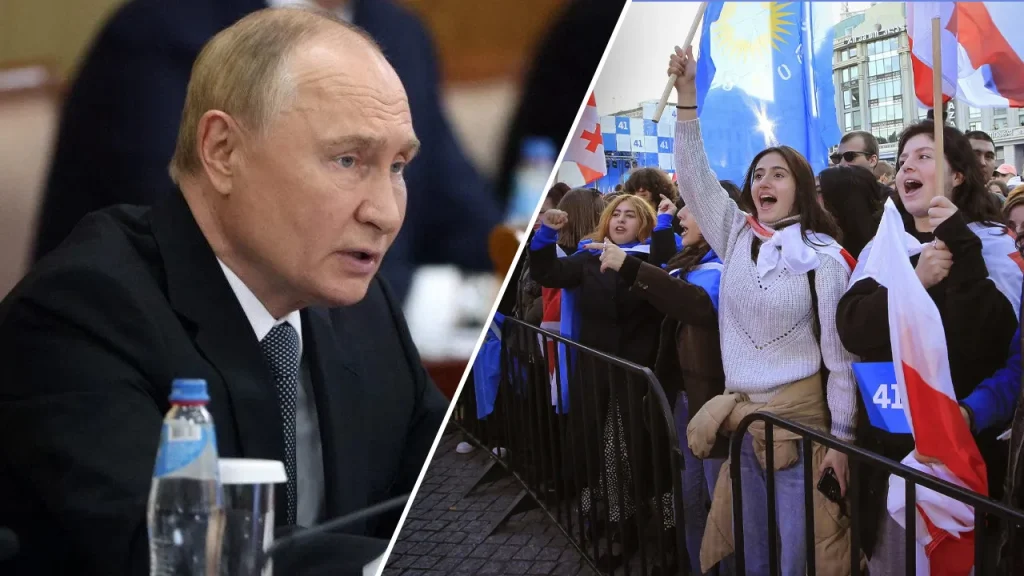Georgians are preparing to head to the polls for parliamentary elections amid tense geopolitical tensions as the country grapples with its relationship with Russia, the European Union, and the West. Since gaining independence from the Soviet Union in 1991, Georgia has been torn between aligning with the West and facing heavy influence from Russia. Russian President Vladimir Putin has a vested interest in keeping Georgia within its sphere of influence and halting its integration with the EU. The upcoming elections present an opportunity for Putin to maintain his grip on Georgia.
In an effort to counter Russian influence, bipartisan senators in the United States have introduced legislation that would hold Georgian government officials accountable for corruption, human rights abuses, and efforts to advance foreign influence laws. These senators argue that the Georgian government’s recent alignment with Russia goes against the desires of the Georgian people and poses a significant threat to the country’s Euro-Atlantic future. Observers believe that the parliamentary elections will be closely watched and could have far-reaching implications for the country’s future.
Opposition politicians, such as Giga Bokeria of Georgia’s pro-European Federalist Party, have accused the current government, led by oligarch Bidzina Ivanishvili, of embracing Russian propaganda and fostering close ties with Russia. Bokeria alleges that Ivanishvili’s government has allowed Russian influence to infiltrate Georgia’s political system, economy, and security structures. Russian security services have been known to align their narratives with those coming from Georgian Dream politicians, further highlighting the close relationship between the two entities.
Despite the efforts of Georgia’s elite political class to cozy up to Russia, polls show that the majority of everyday Georgians support closer ties with the EU. Georgians have strong aspirations to join the EU, with up to 83% of the population in support of this goal. However, the ruling Georgian Dream Party has stalled Georgia’s EU integration efforts and even introduced controversial laws that could impede the country’s progress. If the Georgian Dream Party secures victory in the upcoming elections, it could be detrimental to Georgia’s EU prospects and further cement Russia’s influence in the region.
Pro-Western nonprofit organizations in Georgia have released reports outlining the Georgian Dream party’s reliance on Russian money and donors connected to sanctioned businesses. These donors often have close ties to the Kremlin, raising concerns about their influence on Georgian politics and society. Civic IDEA’s report also points out that some individuals supporting the Georgian Dream party are listed as “international sponsors of war,” further underscoring the potential dangers of continued Russian influence in Georgia. As the country prepares to head to the polls, the future direction of Georgia’s geopolitical alliances hangs in the balance.
Overall, the parliamentary elections in Georgia are shaping up to be a pivotal moment for the country’s future trajectory. The outcome of the elections will not only determine the balance of power within Georgia but also have far-reaching implications for the country’s relationship with Russia, the EU, and the West. With strong aspirations to join the EU and a majority of the population supporting closer ties with the West, Georgia’s political landscape stands at a crossroads as it navigates the conflicting influences vying for control. The stakes are high, and the consequences of the election results could reverberate throughout the region for years to come.


